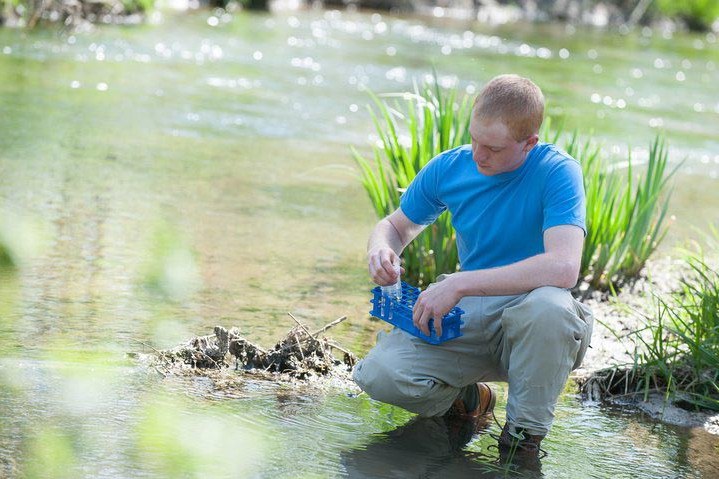Research involves the emerging contaminants in water, hydrologic and watershed modeling, non-point source pollution, stormwater management, wetlands, bioremediation, odor assessment and mitigation, and emissions from animal production.

A person collecting water samples from a creek
Researchers in the department of Agricultural and Biological Engineering working in the area of Natural Resources Engineering and Protection.
Our composting research integrates microbial degradation kinetics with analysis of heat and mass transfer phenomena to address challenges of high moisture feedstocks, aeration control, nutrient losses, and greenhouse gas emissions.
Understanding the fate and transport of agrochemicals is essential for predicting impacts to aquatic ecosystems and for developing appropriate best management practices to improve and protect water quality.
Many investigations in coastal plain riparian soils have highlighted the importance of wetlands in removing nitrate from shallow groundwater.
Agricultural systems are under increasing pressure to provide not just food and fiber but a range of other benefits including clean water and air, wildlife habitat, and recreation.
Several research projects have focused on nutrient cycling and transformations within constructed wetlands designed to treat a variety of wastes.
The Odor Assessment Laboratory studies air emissions for the development of improved agricultural management strategies.

